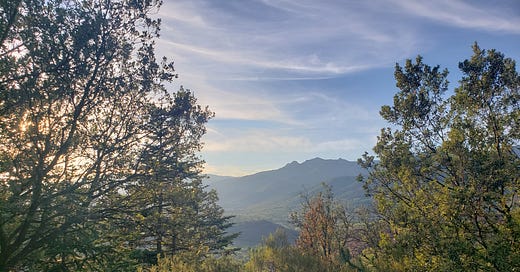Misdirected Hope (part 1)
Moving from the False Hope of Electric Cars, Nuclear Power, and Artificial Intelligence Toward Ecological Solidarity
"New research reveals that people who are experiencing climate-related distress are more likely to engage in collective action. History, by contrast, shows that manufactured optimism can lead to complacency and the shirking of responsibilities.” — Would abandoning false hope help us to tackle the climate crisis? Jonathan Watts.
Buy an electric car and climate change will be fixed; remove restrictions on nuclear energy and it will provide safe and clean energy forever; allow the advancement of artificial intelligence and super intelligent machines will be able to think of new solutions beyond human comprehension. — Paraphrasing the promised lies of technocracy. At its core, it’s climate change denial.
Modernist culture has absorbed the climate crisis under the lie that technology will enable society to continue along this path of endless consumption within planetary boundaries, which are already exceeded. Ordinary people shall not be burdened with the looming threat of ecological collapse. Billionaire messiahs like Bill Gates will fix it. New technology will save us and make our lives better. Why else should society have billionaires and millionaires?
I hate to be the bearer of bad news, but Bill Gates isn't going to save us. He is, after all, a greedy billionaire motivated by whatever increases his wealth and influence. He will not be able to sell, engineer, or innovate us out of the ecological crisis. Not that he will be doing any of those things himself anyway.
Abandoning hope for technology jeopardizes the entire economic system. The sales of cars, energy, and gadgets are needed to bolster the exchange of wages for food and shelter. If people begin to see the system for what it is, and recognize that the ecological crisis cannot be solved within this system’s paradigm, then there might be popular support for a more radical economic transformation.
It’s always more sustainable to do without, but doing without doesn’t boost sales. Walking doesn't create so many jobs, only for shoe and sock makers/repairers, and their related trades. Walking is also slow, enjoyable, and healthy. It's insane to think that if the vast majority of people suddenly decided they would much rather walk, we would be plunged into a recession – a developing crisis in Germany for different reasons. Volkswagen is underperforming. They need to sell half a million new cars every year within Europe to maintain the current workload. Half a million sales a year seems highly unlikely. Mass automotive layoffs in Germany are likely to trigger a full blown recession.
The end of car production should be a reason to celebrate. Peeling back on automative infrastructure would liberate land for food production and new raw materials would no longer need to be ripped from the ground. As for workers, they should be excited about the prospects of factories closing. Their work is done. They've built enough cars and now they can finally enjoy their free time, spend time with friends and family, and explore other interests. A reasonable society should respond to finally completing nearly a century of work this way (Volkswagen began under nazi rule, I should point out). But no, the prospect of not having an endless demand for production means workers face precariousness manufactured by the economic system, even though what they are producing is not essential for survival. Factory towns will become ghost towns and housing shortages will worsen as people migrate to new places in search of jobs.
The loss of employment is a crisis of identity, too. Oftentimes people who have done one thing for their whole lives don't know what to do with the rest of their life once that thing comes to an end. This is not a natural human disposition, but something that we are socialized into becoming.
In the current system, the options are (a) recession or (b) increase consumption. New options need to be normalized. Degrowth offers a viable alternative: work less, consume less, enjoy life more, but for the rich, degrowth means losing grip on power. The rich are addicted to power.
Oil continues to be drilled decades after the connection was made between burning fossil fuels and climate change. Why? Because people are either rich or they aren't. If you aren't rich, you have to work to benefit the rich in order to eat. Through this social mesh of subservience, the wealthy maintain their positions of power. They use their power to tell us that buying an electric car will solve climate change. Eco-conscious members of the upper middle class buy electric cars and feel they've done their part. They feel like they've offset the footprint of their oversized houses, impulsive consumer behaviours, and frequent holidays. The rest of us are supposed to look at a chart that shows the sales of electric cars increasing and feel hopeful for the future.
Let’s build solidarity in the void false hope has made by engaging in solidarity in our everyday actions. Let’s support one another, share belongings, food, and space. Support strangers. Support everyone (and weed out the abusers). I believe that if we are all supported by one another, then we can transform society overnight.
Note: I decided that this would be a good place to stop before moving onto a discussion along the same lines about nuclear energy, artificial intelligence, and more on solidarity. I don't want individual posts to get too long. Please look forward part two (and maybe even three). Thank you for reading! :)
The picture above is the view from when walking up a small mountain in Southern France last autumn. If I lived near an abandoned car factory, I would have taken a picture of that. Maybe this one is more inspiring.




